
More Helpful Content
Vietnam's market is really exciting right now and it's a great opportunity for businesses all around the world. The e-commerce industry is growing fast and consumer behavior is changing, making Vietnam a perfect place for companies to grow and increase their sales. This guide will help you understand the ins and outs to sell in Vietnam, giving you all the information and strategies you need to thrive in this lively market.
As of 2024, the Vietnamese e-commerce market continues to evolve at an unprecedented pace, driven by increasing internet penetration, smartphone adoption, and a young, tech-savvy population.
Here are the key statistics that highlight the market's potential in Vietnam:
So, what are the major players in the Vietnamese e-commerce market for online purchasing? Here are the most famous names:
According to a recent survey by Statista in the third quarter of 2023, Shopee had the highest penetration rate among all e-commerce platforms in Vietnam, as stated by 81 percent of the respondents. Lazada is ranked second, and Facebook is third.
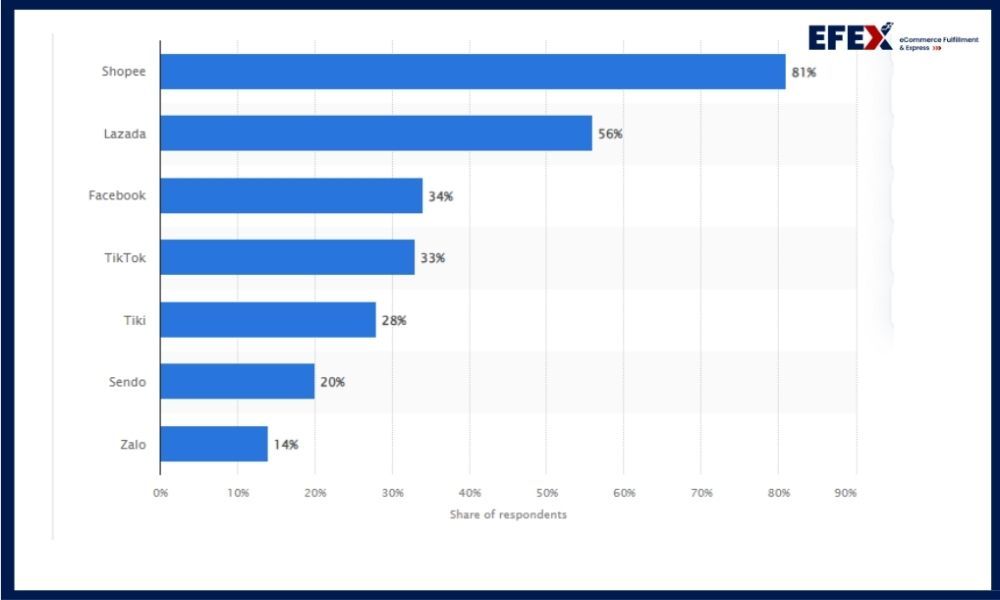
As we delve into 2024, several key trends are shaping the Vietnamese e-commerce landscape, including Mobile Commerce, Social Commerce, Live Commerce, Omnichannel Retail, and more. Let’s see in detail all those trends with us below!
The increasing smartphone usage in Vietnam is projected to drive m-commerce, which is expected to make up more than 70% of e-commerce transactions by 2024. Social media platforms such as Facebook, Instagram, and TikTok are becoming popular avenues for online shopping, with many Vietnamese consumers finding and buying products directly through these platforms.
The emergence of live-streaming commerce is also making a significant impact, offering an engaging shopping experience that combines entertainment with instant purchasing. Moreover, traditional brick-and-mortar stores incorporate online channels to create a seamless shopping journey, blurring the boundaries between offline and online retail.
>> Learn more: Vietnam Live Commerce: Market Overview, Trends, and Future Outlook
We also see growth in some specific product categories in Vietnam ecommerce selling, like:
In 2024, it's super important for new brands in Vietnam to focus on AI, personalization, and user-generated content (UGC) in their online shopping plans. Using AI and machine learning in e-commerce platforms is becoming increasingly essential for creating personalized shopping experiences and tailored product recommendations.
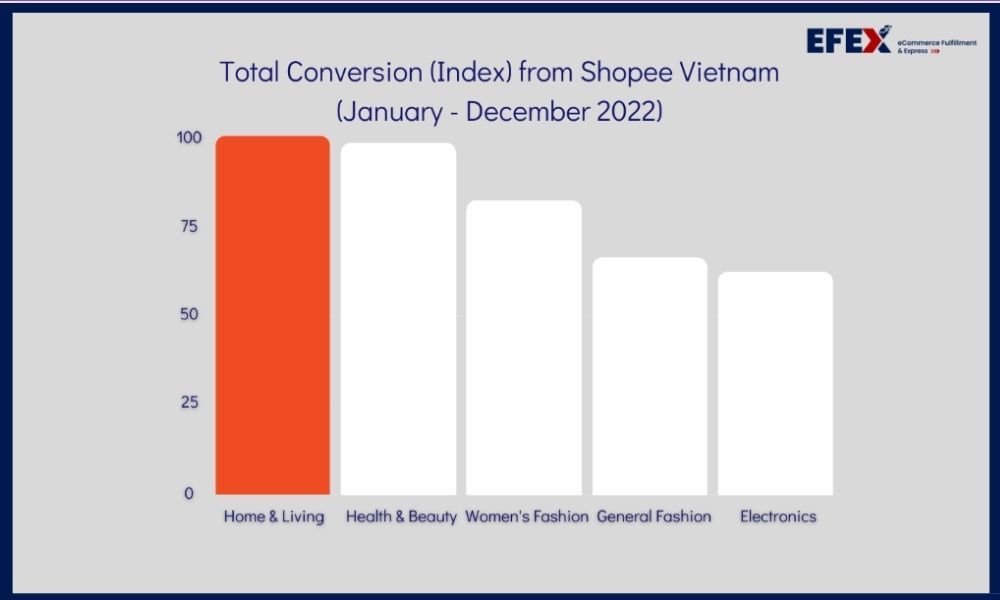
In fact, Vietnamese consumers are quick to embrace global trends and prefer to purchase foreign-made goods. Especially they show a particular affinity for styles emanating from the US, Japan, and South Korea. This is one of the things making Vietnam one of the most attractive markets in Asia.
The rise in frequent online shopping reflects a growing comfort with e-commerce, driven by the increasing penetration of smartphones and internet access, which now stands at 97% for smartphone ownership and 79% for internet connectivity among adults in Vietnam.
According to Fitch Solutions, household spending in Vietnam is projected to grow by 7.1% year-on-year (YoY) in 2024, reaching approximately VND 3,470.7 trillion (around US$143 billion). This growth is fueled by strong economic recovery post-pandemic and rising disposable incomes, despite ongoing inflation concerns.
The expanding middle class, projected to exceed 50% of the population by 2035, is driving increased consumption. This demographic shift is accompanied by higher expectations and a demand for quality products, particularly in urban areas to buy and sell in Ho Chi Minh City.
A growing awareness of environmental issues has led to 80% of consumers expressing willingness to pay more for environmentally friendly and ethically sourced products. The rise of social commerce is notable, with consumers increasingly using social media platforms to discover and purchase products, indicating a shift towards more unified online shopping experiences.
To successfully sell in Vietnam, businesses must consider various sales channels and adapt their strategies to local market conditions. Here are some of the best ways to approach selling in Vietnam:
| Sales Channel | Description | Benefits | Considerations |
| Online Marketplaces (Shopee, Lazada, Tiki) | Use e-commerce platforms to reach a broad audience. | - Built-in logistics and payment solutions. - Easier market entry for foreign businesses. - Access to a large customer base. | - Competition from other sellers. - Platform fees and commissions. - Need for effective product listing optimization. |
| Social Media Selling (Facebook, Instagram, Zalo) | Utilize popular social media platforms to connect with customers and drive sales. | - Direct engagement with target audience. - Opportunity to build brand community. - Cost-effective marketing strategies. | - Requires active community management. - Need for compelling visual content. - Integration with e-commerce platforms for seamless transactions. |
| Cross-Border E-commerce (Amazon Global Selling, eBay Global Shipping) | Facilitate international sales to Vietnamese consumers without a local presence. | - Easier entry point for businesses new to the market. - Access to global fulfillment and shipping networks. | - Higher shipping costs and potential delays. - Quite limited control over customer service and returns. |
| Partnerships with Local Distributors | Collaborate with established distributors to expand reach and leverage local expertise. | - Access to existing distribution networks. - Local market knowledge and regulatory compliance support. - Reduced logistical challenges. | - Sharing profits with distributors. - Potential for less control over branding and sales strategies. |
Our tip for you is to take advantage of opening multi-platform online stores in Vietnam to maximize your profits!
When you're looking to make a successful entry into the Vietnamese market, it's really important to keep these key factors in mind when you're selling in Vietnam:
Whether you're an experienced seller or just starting out, expanding your business to Vietnam can be a little bit difficult venture. To help you navigate the process smoothly and effectively, we've outlined the essential and detailed steps for selling in Vietnam from initiation to delivering orders to the hands of customers and making customers loyal to your brand. Let's dive in:
Before you can sell in Vietnam, it's important to register for a business license. This step might be a trouble for many foreign investors or merchants looking to establish a business in Vietnam.
However, you need to check the list of requirements in order to make sure that your business registration process is convenient prior to opening a business in Vietnam.
Vietnam does not provide unrestricted access to foreign investors in its market. Therefore, it is crucial to familiarize yourself with the investment and business conditions before launching and operating your business in Vietnam.
Below are examples of business activities that foreign investors can engage in while registering a company with 100% foreign ownership:
Investment capital refers to the total amount of funds invested in a company. It comprises two components:
To put it simply, investment capital includes both the contributed capital and, if applicable, any borrowed funds that are invested in the company.
To establish a company and sell in Vietnam, it is mandatory to have a business address within the country. This serves as the registered office and main location for conducting business activities, in accordance with Article 48 of Enterprise Law and Article 38.2 (b) of Vietnam Investment Law).
Typically, it is recommended to select a business address that aligns with the majority of your business operations. It is highly advisable to personally visit the location to ensure that it is suitable and well-suited for your specific business needs. This on-site visit allows you to assess whether the chosen location is the most appropriate fit for your company.
There are 3 main kinds of company structures for foreign merchants to choose and start the journey of selling in Vietnam:
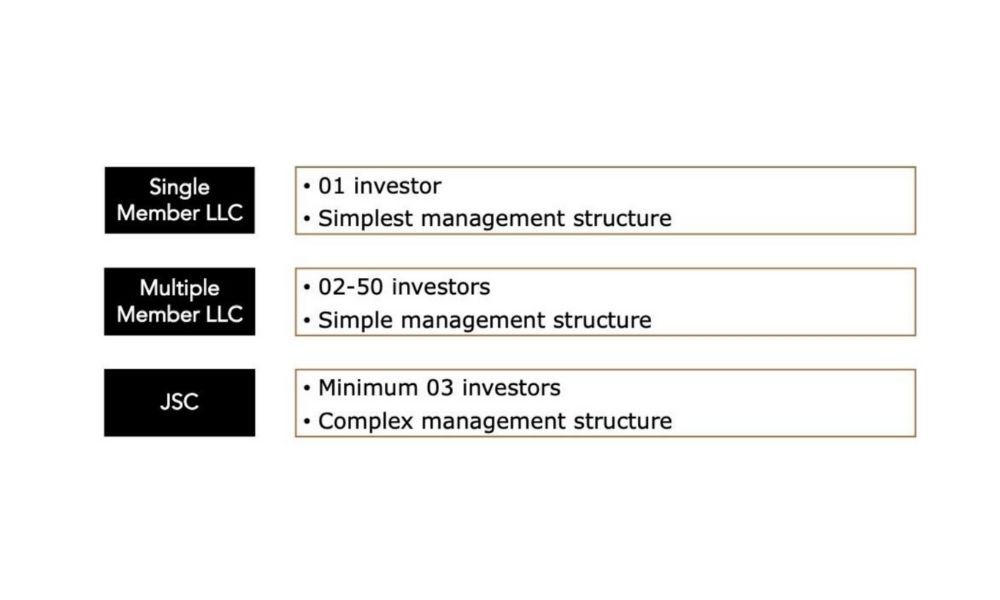
A legal representative is a person who acts on behalf of a company and is responsible for carrying out the rights and responsibilities that arise from the company's transactions.
In Vietnam, a company has the flexibility to appoint multiple legal representatives, who may hold titles such as Director, General Director, President, CEO, and so on.
Both Vietnamese residents and foreign individuals can serve as legal representatives for a Vietnam-based company, as long as at least one representative resides in Vietnam. It is important to note that while it is not mandatory by law to hire a local legal representative, the decision to do so depends on the specific needs and requirements of your business.
The foreign sellers must prepare some required documents:
| Individual investors/sellers | Corporate investors/sellers |
| Passports of all investors/sellers | Company registration certificate |
| Bank account balance certificate | Financial statements for the latest 2 years Bank account balance certificate |
| Lease contract and its legal documents | Lease contract and its legal documents |
👉 Learn more: Business Registration Certificate in Vietnam: All Detailed Steps
If you intend to obtain products from sources outside of Vietnam to sell in Vietnam, it is important to obtain an import license.
In this country, you should take note that certain products require registration before they can be legally sold. Examples of such products include:
Moreover, protecting your intellectual property is crucial if you are selling a product in Vietnam that has been developed by your company. This ensures that only you have the exclusive rights to manufacture and sell it.
In practical terms, companies that wish to import goods into Vietnam without establishing a local legal entity have the option of finding a third party. This approach enables foreign businesses to navigate and optimize the importation process effectively and overcome potential language barriers when facing logistics challenges, and a desire to test the market.
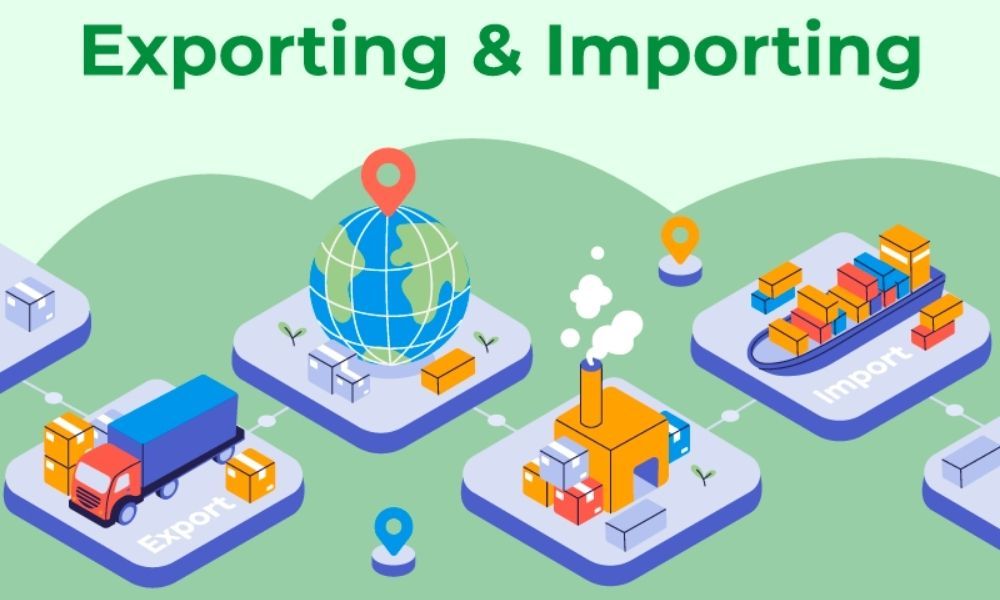
After importing products into Vietnam to sell in Vietnam, you will continue to conduct customs procedures.
In Vietnam, all imported and exported goods are required to adhere to the country's customs clearance regulations. These standards serve to ensure that the quality, specifications, quantity, and volume of the goods are thoroughly inspected and meet the necessary criteria. Additionally, specific imported goods are subject to further scrutiny through inspection procedures.
For instance, imported pharmaceutical products must undergo rigorous testing and be accompanied by comprehensive documentation detailing essential information such as product usage, dosage, and expiration dates. It is crucial that these details are provided in Vietnamese language and are displayed on or within the product packaging.
To regulate these customs procedures, Vietnam has implemented Law No. 54/2014/QH13, which outlines the current standards that importers and exporters must follow to ensure compliance.
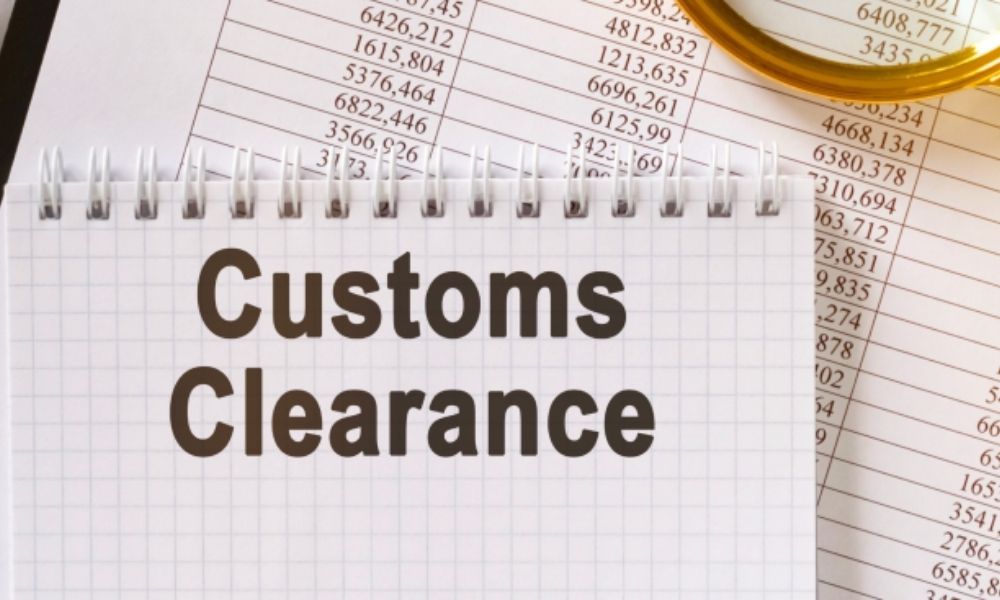
If you're considering selling online in Vietnam, it would be a major oversight to neglect the vast potential of e-commerce platforms. A recent study conducted by Statista in 2023 revealed that as of February of that year, a staggering 22.79 million individuals were actively engaged in online shopping through various e-commerce platforms. This surge in popularity can be attributed to the unparalleled convenience, enticing discount vouchers, and the bonus of free shipping that these platforms offer. In fact, experts estimate that by the year 2028, the number of enthusiastic online shoppers on e-commerce platforms is projected to skyrocket to an impressive 37.17 million.
Opening multi-platform online stores in Vietnam presents a compelling opportunity to maximize your brand's visibility and reach a wider audience. By strategically listing your products on multiple platforms, you can tap into diverse customer segments and capitalize on the unique strengths of each platform. This approach allows you to diversify your sales channels, attract more potential buyers, and potentially boost your overall revenue.
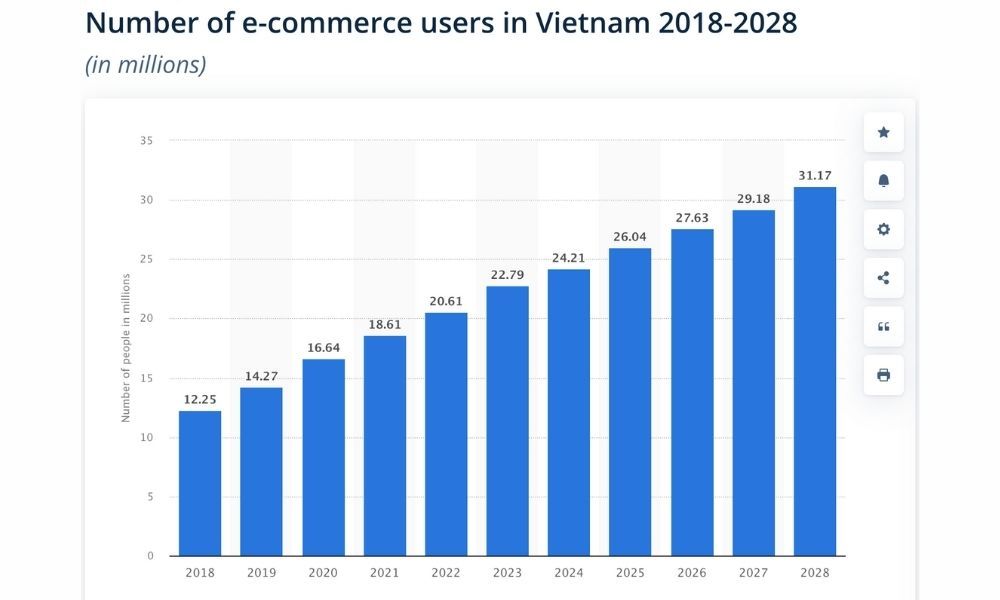
Currently, there are some leading e-commerce platforms in Vietnam such as Shopee, Lazada, TikTok Shop, and Tiki. Each platform has its own registration and listing process, so take the time to understand their requirements and optimize your product listings accordingly. Tailor your content and visuals to resonate with the local audience, and consider utilizing translation services to provide accurate product information in Vietnamese.
>> Learn more: Top 16 Vietnam Ecommerce Sites
A well-executed marketing plan is essential to stand out in the competitive Vietnamese market when you want to sell in Vietnam. Don't forget that your marketing plan must be suitable for Vietnamese customer insights and behaviors.
For example, Vietnamese consumers tend to believe in foreign cosmetics brands instead of local cosmetics brands. Because there are a lot of low-quality skincare products on the markets from local brands, which makes them have troubles with their skin, and due to some other reasons.
EFEX also suggests some steps to make an effective marketing plan so that you always go first than your competitors.
Just as you conducted thorough market research before launching your domestic marketing plan, the same level of research is essential before expanding into the Vietnam market.
This entails understanding the target customers in this market and their preferred marketing channels. Are they active on social media? Do they gravitate towards video content? It's crucial to consider cultural differences that influence their media consumption habits.
To answer these questions you can refer to some reliable report websites such as Statista, Decisionlab, DataReportal,...
For instance, according to the Statista, people in Vietnam tend to spend over 2 hours on social media daily in 2022. In that year, Facebook was the leading active social media app in the country. You can see the details in the report below.
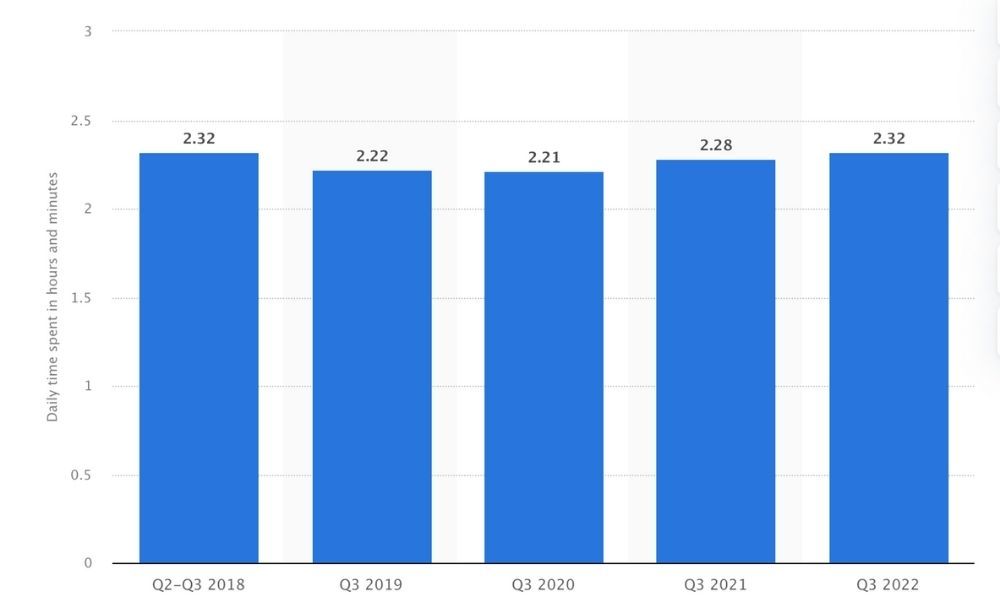
So, now you know that you should build branding on social media to increase brand awareness among consumers. In contrast to Generation X and Y, Generation Z exhibited greater utilization of other global platforms like Instagram, TikTok, and Pinterest.
You can also base on some reports EFEX gathers in the first part of this article to make a suitable Marketing plan.
Furthermore, it is vital to familiarize yourself with the specific rules and regulations of your target country like Vietnam to avoid launching a campaign that inadvertently violates any of them. Therefore, conducting comprehensive market research and understanding the legal framework is imperative before venturing into the Vietnam market.
When it comes to crafting a marketing plan, setting goals is like putting together a crucial puzzle piece. It not only provides a benchmark for measuring success or failure but also sets the stage for your international expansion. However, it's essential to establish SMART goals that are both reasonable and strategic.
SMART goals are Specific, Measurable, Achievable, Relevant, and Time-bound. These goals should enable you to not only generate profits when selling in Vietnam but also consistently enhance your presence in the regions you're expanding into.
They act as a guiding light, ensuring that your efforts are focused and aligned with your long-term objectives. So, by setting SMART goals for your international expansion, you're not only aiming for success but also laying the foundation for continuous improvement and growth in new markets.
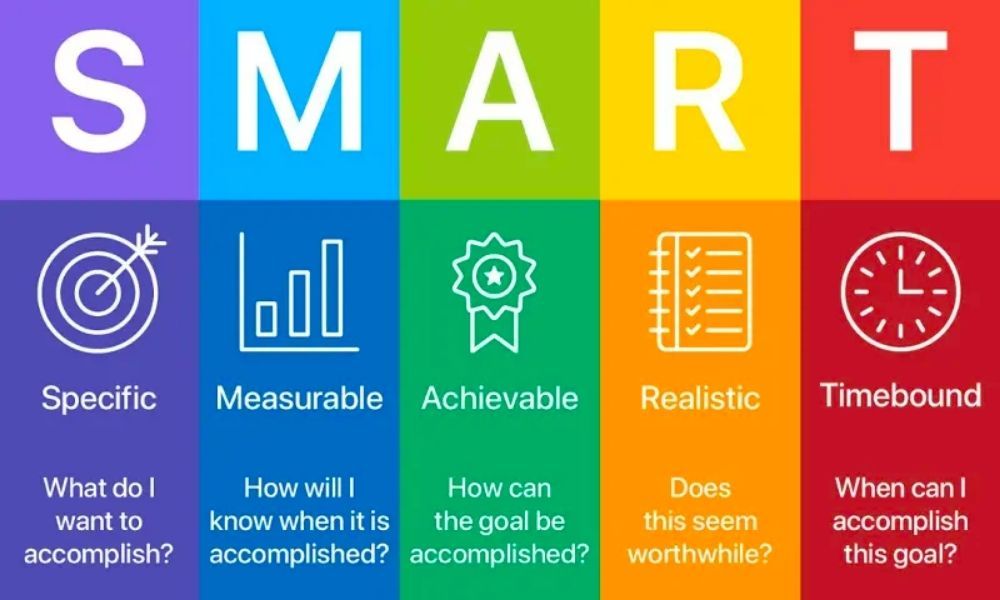
Before expanding your business to another country, it is crucial to assess whether your branding and marketing strategies need to be adapted for the new market. And when you penetrate and sell in Vietnam, you also need to do so.
If your market research indicates the need for a different approach, it is time to develop a localization strategy. Actually, if you are selling in Japan or Korea, there must be some differences, and you need another strategy to meet the demands of Vietnamese customers.
Localization involves tailoring your messaging to align with the cultural and personal preferences of each specific country you are targeting. For example, what may resonate with customers in Japan or Korea may not have the same impact in Vietnam.
To meet the unique needs of your new customers, it is important to shift your branding and messaging accordingly. let's begin by identifying the disparities between your original domestic messaging and the new international content you need to develop.
You can highlight these differences and outline the necessary changes in your tactics for this entirely new market space. By doing so, you can effectively connect with your target audience on a personal and cultural level.
Efficient order fulfillment is crucial for customer satisfaction. Because the thing that makes them come back and be loyal to your brand also depends on this stage. Thus, please make sure that all stages from customer placing orders to receiving orders are smooth and make your customer satisfied.
Below is the detailed process of order fulfillment from storing, and fulfilling to delivering orders to the end customers.
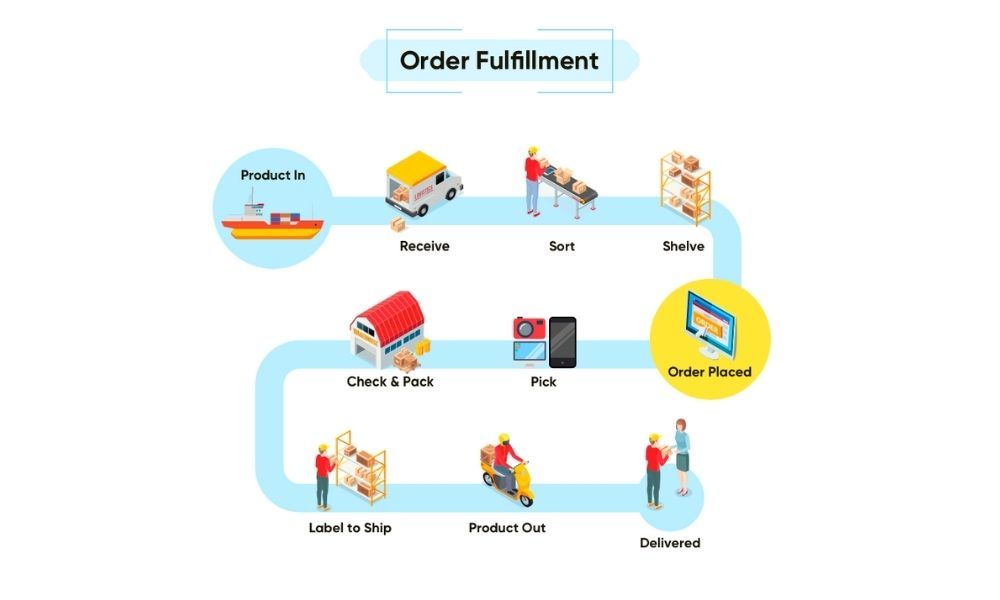
However, managing order fulfillment on your own in other foreign countries is quite challenging, especially when you sell in Vietnam. It entails numerous responsibilities that consume your time, preventing you from focusing on product development and marketing activities. These might be:
So, let's evaluate your options for warehousing and fulfillment in Vietnam. You can establish your warehouse or partner with third-party logistics providers that offer fulfillment services. Please ensure that your chosen fulfillment method aligns with your business needs and provides reliable and timely delivery to your customers.
To build customer loyalty and maintain a positive reputation, it's important to provide excellent after-sales support. When you sell in Vietnam, please establish clear policies for returns, exchanges, and customer inquiries.
Let's consider setting up a dedicated customer support team or outsourcing customer service to ensure prompt and effective communication with your customers. Responding to customer feedback and addressing their concerns promptly will help build trust and enhance your brand reputation in Vietnam.

Understanding the challenges and barriers that foreign merchants encounter when selling in Vietnam, EFEX was born with the mission of helping businesses penetrate and develop strongly in Vietnam with the highest level of service at the lowest possible cost.
With an extensive network of over 30,000 retailers nationwide, professional in logistics (warehouse & fulfillment) as well as in Marketing, EFEX simplifies sellers' entry into the Vietnamese market like never before. Sellers can now concentrate on product development to sell in Vietnam, leaving the A-to-Z details in EFEX's capable hands.
With over 5 years in the industry and a team of well-trained staff in multiple industries from Legal, Marketing, warehouse operation, import-export, and customer support, what can EFEX support foreign merchants?
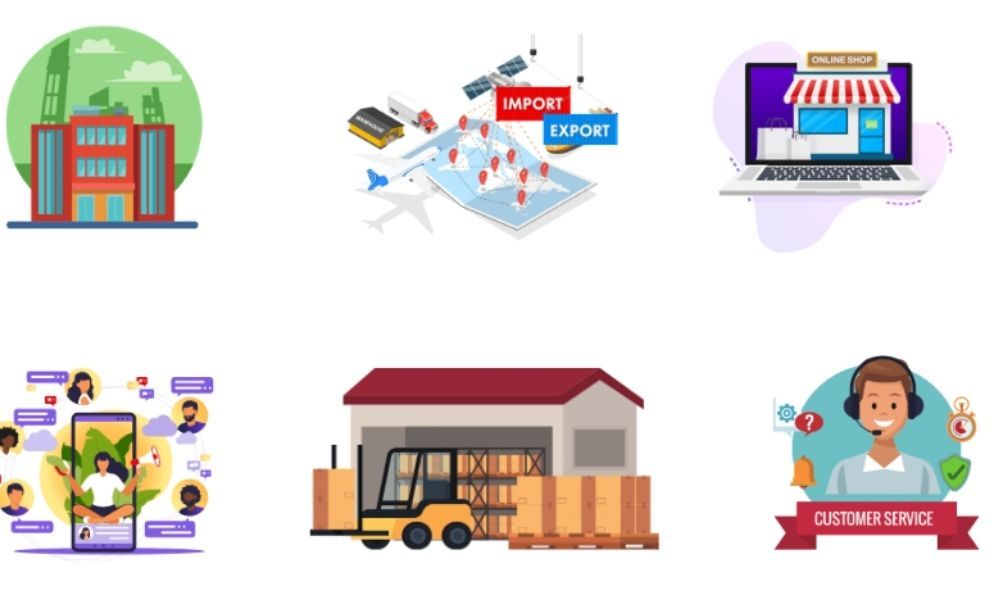
In conclusion, EFEX takes care of every step along the way, making it easier than ever for foreign merchants to establish a successful presence in the Vietnamese market, as the motto we set: Let focus on scaling, we will handle the rest!
You can find more details about EFEX's solutions for foreign merchants to sell in Vietnam here.
>> Learn more:
Here are some key challenges when you choose to sell in Vietnam:
Vietnam has a diverse import/export landscape, with high demand for various product categories. Popular items to import to Vietnam include electronics, machinery, and raw materials for manufacturing. Key export categories include textiles, footwear, and agricultural products such as coffee and rice. Additionally, pharmaceuticals, cosmetics, and food and beverages are notable categories for both import and export.
Facebook is the dominant social media platform for reaching Vietnamese consumers, with a large user base and strong engagement. Instagram is popular, especially with younger demographics, and works well for visually appealing products. Zalo, a local messaging app, is crucial for direct communication and marketing, offering targeted advertising and group chats.
The most popular payment to buy and sell in Vietnam methods include:
It is crucial to partner with reliable logistics providers with a strong local network. Some options to consider are well-established companies such as Viettel Post, VNPost, and GiaoHangNhanh, as well as rising startups focusing on last-mile delivery. Alternatively, consider partnering with EFEX, a trusted logistics provider that offers a strong local network and expertise in navigating the complexities of the market.
By following these step-by-step guidelines, you'll be well on your way to successfully selling in Vietnam. Remember, each step requires careful planning and execution. Although selling in the Vietnamese market can be challenging, don't forget that EFEX is always by your side to support your business from A to Z.
EFEX commits to making you sell in Vietnam more easily than ever so that you can unlock the immense potential of this vibrant market and make a huge profit. Best of luck on your journey to sell in Vietnam!


